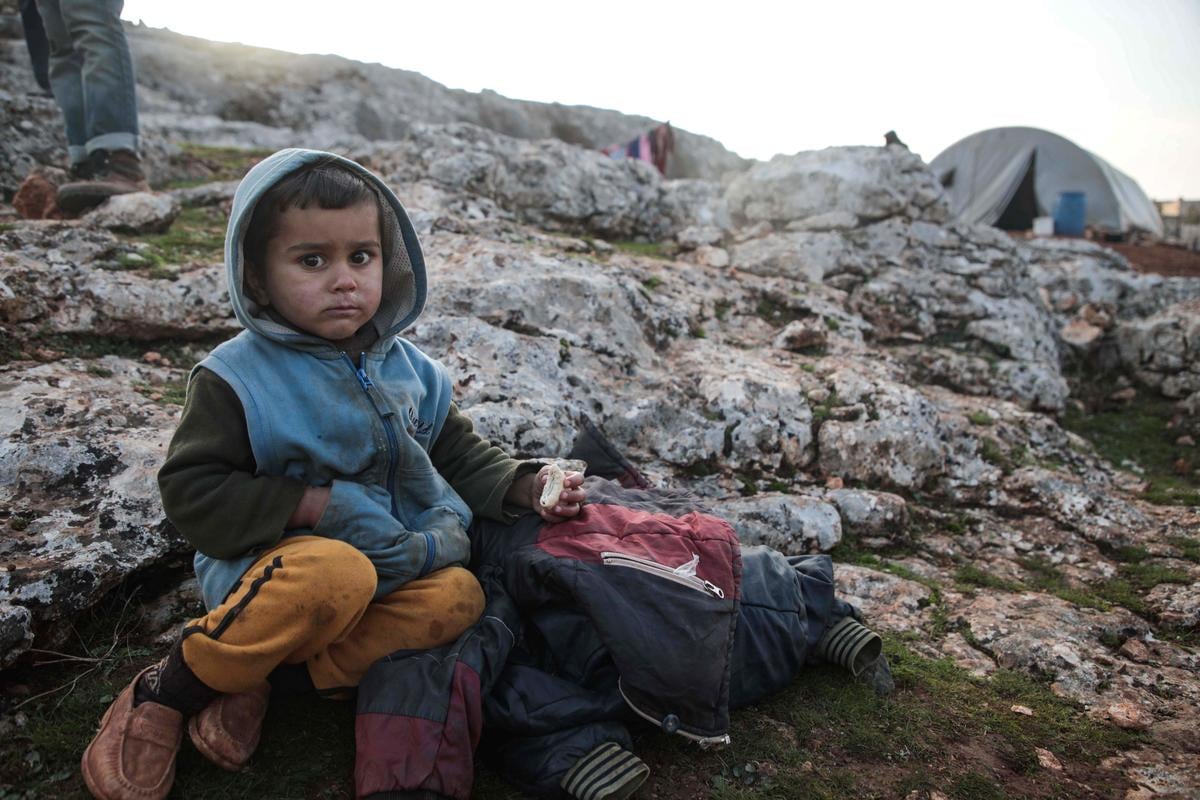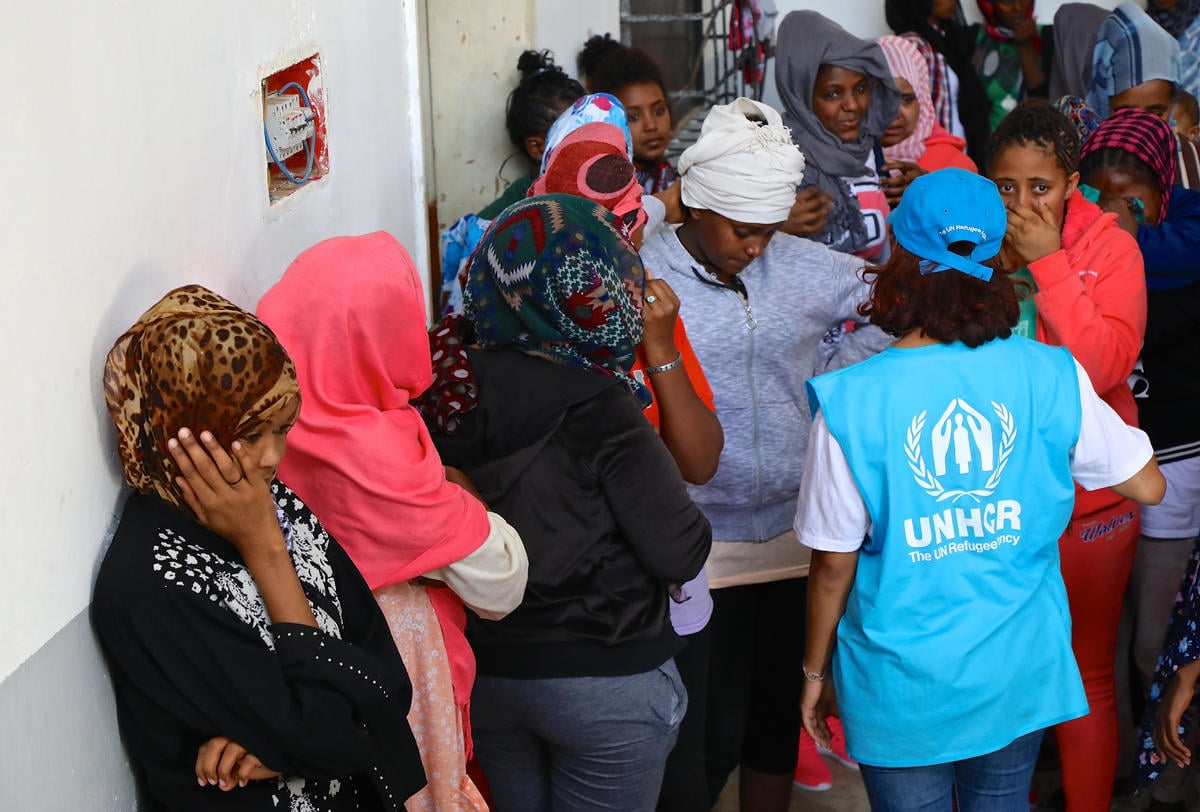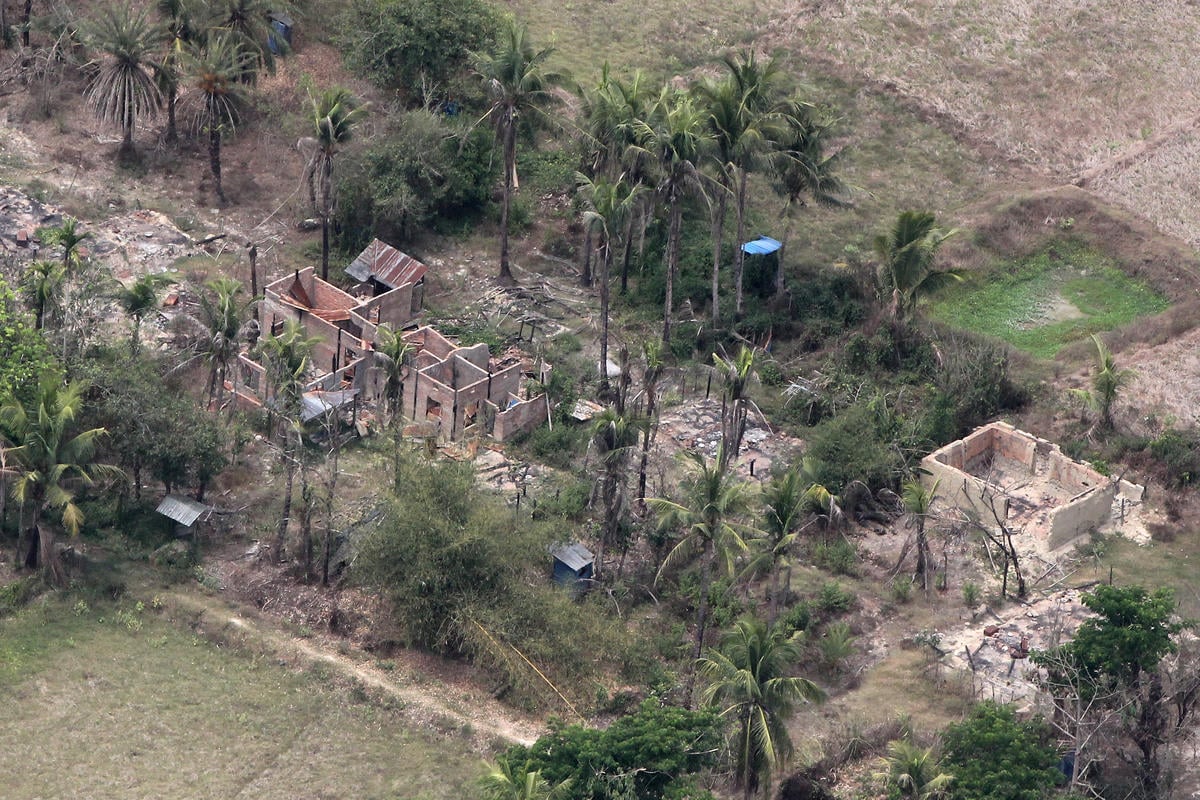Do more to translate peace deal into reality in South Sudan, urges Guterres
Do more to translate peace deal into reality in South Sudan, urges Guterres

PALORINYA, Uganda, June 21 (UNHCR) - High Commissioner António Guterres told recently displaced refugees from South Sudan today that the international community must do more to translate a peace agreement for the region into reality.
Visiting a reception centre at Palorinya in northern Uganda on the second day of a three-day mission, Guterres met recently-arrived refugees, including one man who asked why people were still being forced to flee despite the January 9 peace agreement in South Sudan.
The man said he arrived in Palorinya on May 20 after fleeing repeated attacks on a succession of villages in South Sudan by the notorious Lord's Resistance Army. "That peace agreement is for others and not for all of us," said the man, whose wife was killed and five of his six children missing. "When will it help us?"
The High Commissioner told the refugees: "Some people don't respect the peace agreement. Then there are the attacks by the Lord's Resistance Army. It will take some time, but I hope things are moving in the right direction. It will take patience, however."
"Ok, we will be patient but we want to be taken care of in the meantime," the refugee replied.
Guterres acknowledged that following the peace agreement, UNHCR had expected a repatriation movement, not the arrival of more refugees. "This was supposed to be a transit centre for refugees returning to South Sudan, not a reception centre for new arrivals," he told the refugees. "Now we are working closely with Ugandan authorities to find land for you while you are here."
The High Commissioner, who has praised Uganda's generosity for receiving hundreds of thousands of refugees over the years, urged "an extra dose of solidarity" from local Ugandan authorities in caring for the latest arrivals.
He noted that the latest influx of South Sudanese refugees into Uganda threatens to jeopardise UNHCR plans to start a major repatriation to the affected areas of South Sudan later this year.
Some of the refugees who met him said their confidence in any future repatriation was shaken by the recent outflow from South Sudan.
In all, there are some 204,400 Sudanese refugees in Uganda. About 2,550 of them have been registered at Palorinya since the start of this year. Nearly 9,000 have arrived in the Arua region of northern Uganda since January.
Guterres told reporters that there is "still a lot to do to stabilise the situation in South Sudan." He said there is a need for the peace agreement in South Sudan to translate into a peaceful situation for everyone on the ground, and highlighted the need for a peacekeeping presence in South Sudan.
In the afternoon, the High Commissioner visited Adjumani district's Oliji primary and secondary schools, whose students are Sudanese refugees who were displaced a second time when their settlement in Mungula was attacked last year by the LRA. The school, which was established by refugees themselves, reopened 35 km away in Oliji, but classrooms are makeshift structures of plastic and reeds which provide scant protection from either sun or rain. Human resources are overstretched too, with each teacher taking on 93 students in the senior class.
The refugees said Mungula was extremely fertile, so parents could pay for their children's school fees with the profits from their crops. But in Oliji they are struggling to make ends meet.
Headmaster Albert Licki, a refugee himself, said children from six different tribes attend classes together in the school, paving the way for peaceful co-existence once they return home to South Sudan.
After Oliji, the High Commissioner Guterres was scheduled to visit some internally displaced Ugandans at Maasa site before returning to Kampala to meet senior government officials. He will conclude his first mission with UNHCR on Wednesday.
By Ron Redmond in Palorinya, Uganda









